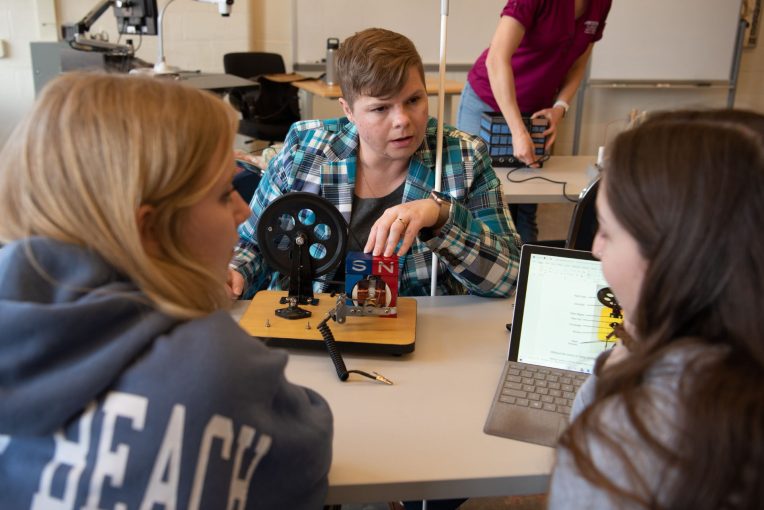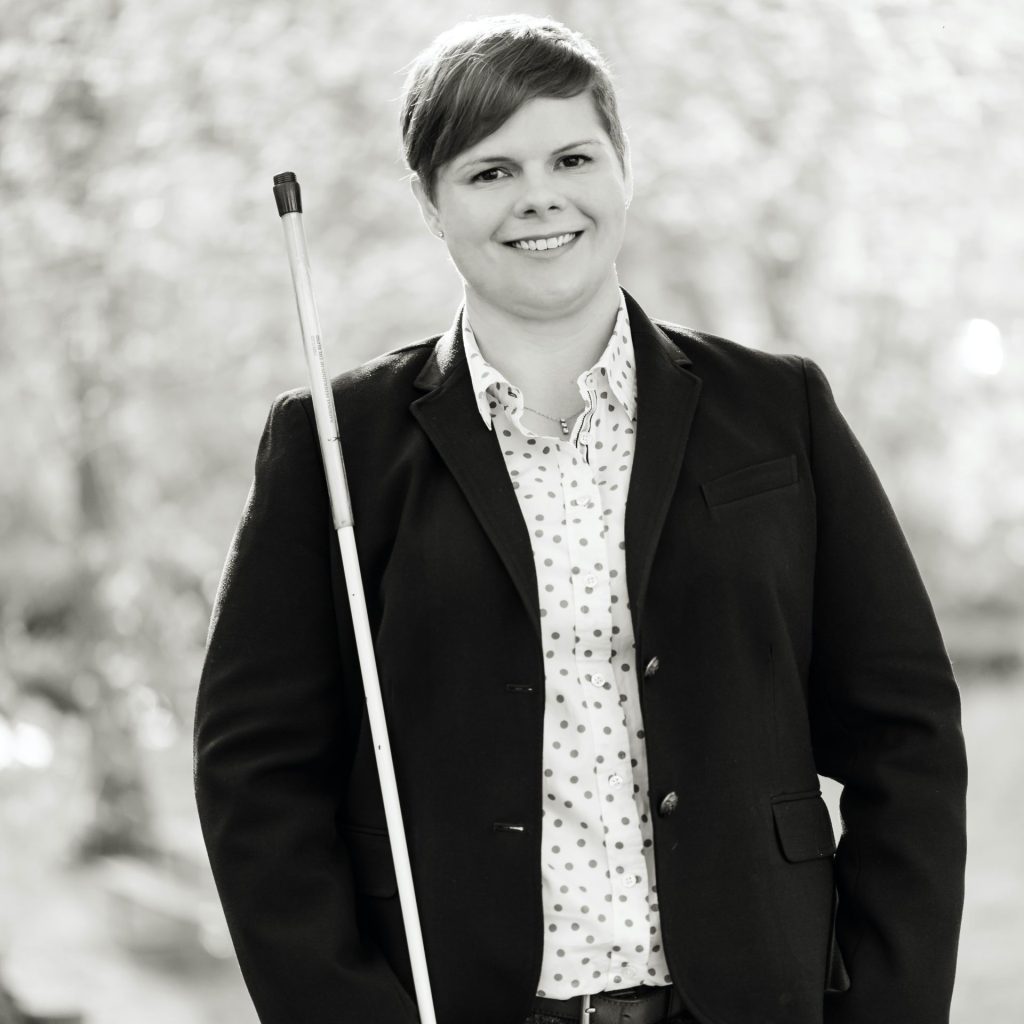Dr. Natalie L. Shaheen, assistant professor in the Department of Special Education (SED) is the recipient of a National Science Foundation (NSF) CAREER grant of just over $1.5 million. The five-year grant will address the inequities in science education for blind and low-vision (BLV) students. The NSF CAREER grant is a prestigious grant that is awarded to pre-tenure faculty who show potential to excel and become leaders in their field.
Shaheen’s grant is the largest grant to a single faculty member in SED in 25 years.
“The NSF is concerned about equity in STEM education,” said Shaheen. “This project is aimed at increasing the long-term accessibility of high school science classes, particularly when technology is used. We know from both research and legal actions that many technologies used in K-12 classrooms are not accessible to blind and low-vision students, and it appears the barriers may be most significant in STEM classes.”
The project will explore what high school teachers of blind students and high school science teachers know about constructing born-accessible (i.e., proactively accessible) classes where technology is used. In a born accessible science class, all of the technology and teaching approaches are accessible from the start. That way if a BLV student chooses to take the class they do not have to wait for access, or worse be excluded from most of the learning.
“As a blind teen with STEM aptitudes, I was dissuaded from pursuing additional STEM coursework after a very inaccessible high school chemistry class. Today, over two decades later, blind and low-vision teens face similarly inaccessible science classes, even though we know how to make science classes accessible.”
Appears InIn addition to the research, the project will create learning opportunities for in-service and pre-service teachers to learn how to construct born-accessible science classes where technology is used. Shaheen and her team will create a case library using data from Shaheen’s previous qualitative research and subsequently develop modules for preservice teachers at ISU and later open educational resources that will be available around the world for university professors and school district professional development coordinators to use.
The NSF grant provides funding for Shaheen to build a team of younger scholars, from postdoctoral fellows to undergraduate research assistants, whom she will mentor. “I have benefited from tremendous mentorship throughout my career and I’m excited to share what I’ve learned with the next generation of scholars.”
Shaheen shared that Director of the Center for Mathematics, Science, and Technology Dr. Bekky Darner has been one of her mentors. “Dr. Darner has had a significant impact on my scholarship since I arrived at ISU as a new faculty member,” said Shaheen. “Bekky has continued to mentor me through the NSF CAREER grant writing process and provided invaluable insight that led to a funded proposal. I am deeply grateful for her mentorship and support.”
Through this grant, Shaheen and her team will work towards a more equitable education system in which BLV students have access to STEM education and careers.
“Blind and low-vision people are used to navigating a world that isn’t built for them and therefore have exceptional problem-solving skills, the type of skills that make great scientists,” said Shaheen. “But right now blind and low-vision students rarely get to put their problem-solving skills to work in a lab. Through this grant, and my broader work, I’m trying to do my part to change the unjust status quo.”
This material is based upon work supported by the National Science Foundation under Award No. (2334693). Any opinions, findings and conclusions or recommendations expressed in this material are those of the author(s) and do not necessarily reflect the views of the National Science Foundation.


